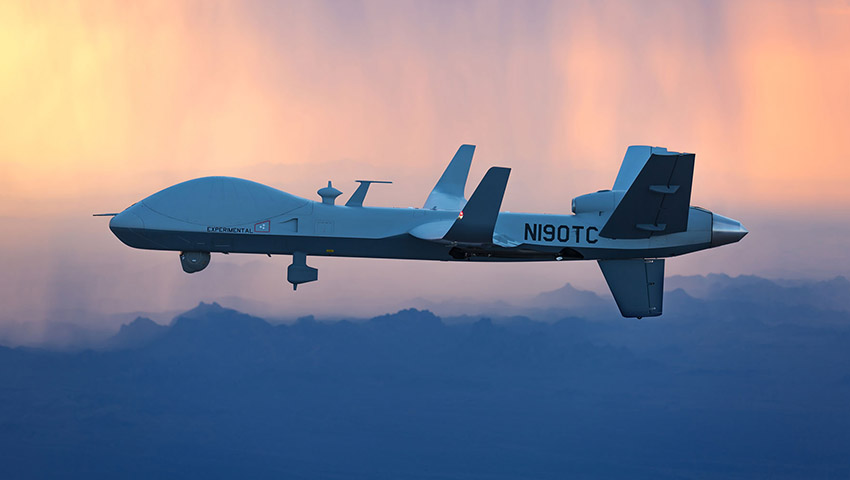General Atomics Aeronautical Systems, Inc (GA-ASI) recently completed Full-Scale Static (FSS) testing on the MQ-9B Remotely Piloted Aircraft (RPA) wing after three months of extensive testing.
The testing included multiple load cases to 150 per cent of expected maximum flight loads, the wing was loaded using specially designed fixtures to apply a distributed load across the wingspan – simulating gust and manoeuver flight conditions – with no failures.
Dee Wilson, vice president, engineering research development and design hardware explained, “Successful completion of FSS testing on the MQ-9B wing was a critical step in proving that our design meets stringent certification standards for structural strength and integrity.”
This particular wing design is the culmination of a large development effort from multiple areas within GA-ASI and represents a major milestone in qualifying the MQ-9B SkyGuardian and SeaGuardian RPA to fly in non-segregated airspace.
“The wing performed as expected, matching analytical predictions closely. Our engineering design, stress and test teams are commended for an exceptional effort in meeting this critical milestone,” Wilson added.
The wing test success also establishes the baseline wing design for the entire MQ-9B product line.
This is critical as GA-ASI starts deliveries to the multiple customers pursuing the MQ-9B including the United Kingdom, Belgium and Australia.
GA-ASI, an affiliate of General Atomics, is a leading designer and manufacturer of proven, reliable, Remotely Piloted Aircraft (RPA) systems, radars, and electro-optic and related mission systems, including the Predator RPA series and the Lynx Multi-mode Radar.
With more than six million flight hours, GA-ASI provides long-endurance, mission-capable aircraft with integrated sensor and data link systems required to deliver persistent flight that enables situational awareness and rapid strike.


